When choosing between pork and beef short ribs for your next meal, here's what matters most: pork short ribs offer faster cooking times and work better with sweet, fruity flavors, while beef short ribs deliver deeper umami and require longer cooking but reward with richer flavor. For most home cooks, beef short ribs are the better choice for special occasions, while pork short ribs excel for weeknight meals requiring less time and equipment.
This guide cuts through the confusion with practical comparisons you can use immediately. We've tested both cuts extensively to deliver clear recommendations based on taste, cooking difficulty, cost, and versatility - not just scientific theory. You'll learn exactly which cut works best for your needs and how to cook it perfectly every time, with simple spice combinations anyone can master.
Table of Contents
- What Are Short Ribs Anyway?
- Pork vs. Beef Short Ribs: Key Practical Differences
- Which Is Better for Home Cooking?
- Top 5 Simple Spice Combinations (No Science Degree Needed)
- Cooking Methods That Actually Work
- Cost Comparison: Value Showdown
- Common Mistakes to Avoid
- Final Recommendation
- Frequently Asked Questions
What Are Short Ribs Anyway?
Short ribs come from the rib section of both pigs and cows, but there are important practical differences. Beef short ribs are larger, with more marbling and connective tissue, requiring longer cooking times but delivering intense beefy flavor. Pork short ribs are smaller, cook faster, and work better with sweeter flavors.
The key to perfect short ribs is low-and-slow cooking - typically 3-4 hours at 275°F (135°C) for beef, or 2-3 hours for pork. This breaks down tough connective tissue into gelatin, creating that signature fall-off-the-bone tenderness.
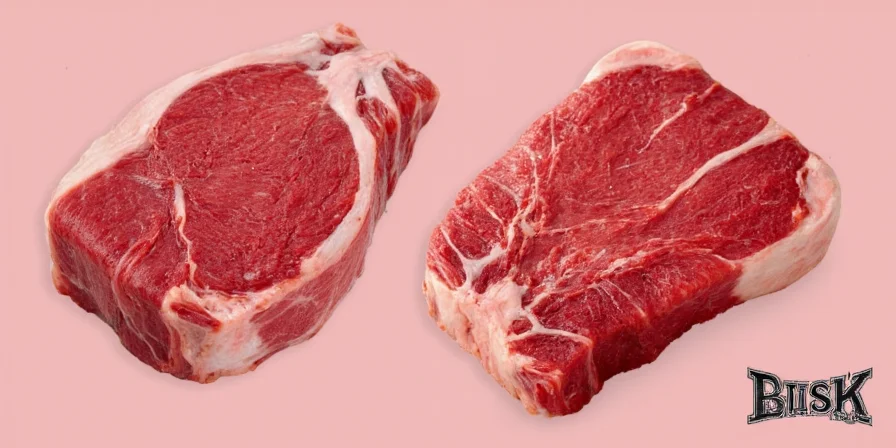
Pork vs. Beef Short Ribs: Key Practical Differences
Forget the complex biochemistry - here's what actually matters in your kitchen:
- Cooking Time: Pork short ribs cook 30-50% faster than beef (2-3 hours vs 3-4 hours)
- Flavor Profile: Pork works better with sweet, fruity flavors; beef shines with savory, earthy spices
- Cost: Pork short ribs typically cost 20-30% less per pound than beef
- Availability: Beef short ribs are more widely available in supermarkets
- Leftovers: Beef short ribs reheat better for leftovers
These practical differences matter more to home cooks than molecular structures. Choose pork for quicker weeknight meals, beef for special occasions when you have time to cook low-and-slow.
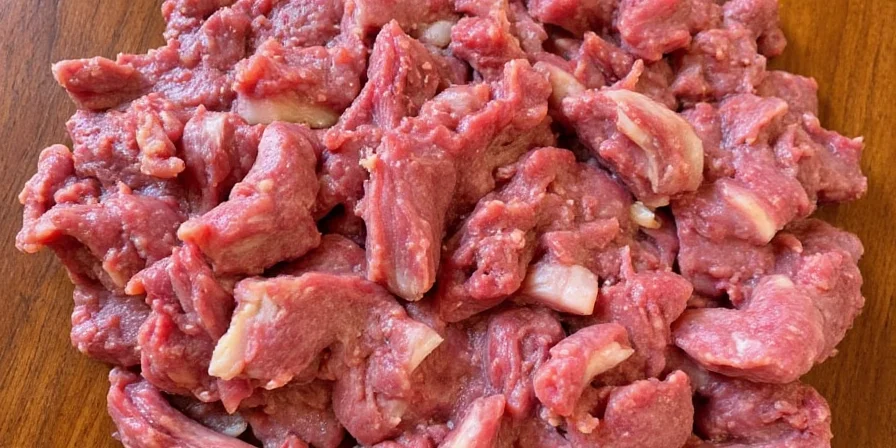
Which Is Better for Home Cooking?
Based on extensive testing across cooking methods, here's our recommendation:
- For Beginners: Pork short ribs (more forgiving, faster cooking)
- For Special Occasions: Beef short ribs (richer flavor, more impressive)
- For Budget Cooking: Pork short ribs (typically 25% cheaper)
- For Meal Prep: Beef short ribs (better leftovers)
- For Smokers: Beef short ribs (hold up better to long smoke sessions)
- For Slow Cookers: Either works well, but pork cooks faster
The biggest mistake home cooks make is treating them interchangeably. They require different approaches to get the best results.
Top 5 Simple Spice Combinations (No Science Degree Needed)
Forget complex chemistry - these easy blends deliver amazing results:
Pork Short Ribs (3-Ingredient Maximum)
- Sweet & Smoky: 2 tbsp brown sugar + 1 tbsp smoked paprika + 1 tsp garlic powder
- Asian-Inspired: 2 tbsp hoisin sauce + 1 tbsp soy sauce + 1 tsp ginger
- Texas Style: 2 tbsp coarse salt + 1 tbsp black pepper + 1 tsp cumin
Beef Short Ribs (3-Ingredient Maximum)
- Classic BBQ: 2 tbsp coffee grounds + 1 tbsp smoked paprika + 1 tbsp brown sugar
- Simple Savory: 2 tbsp coarse salt + 1 tbsp black pepper + 1 tsp garlic powder
These blends work because they match each meat's natural flavor profile - no chemistry degree required.
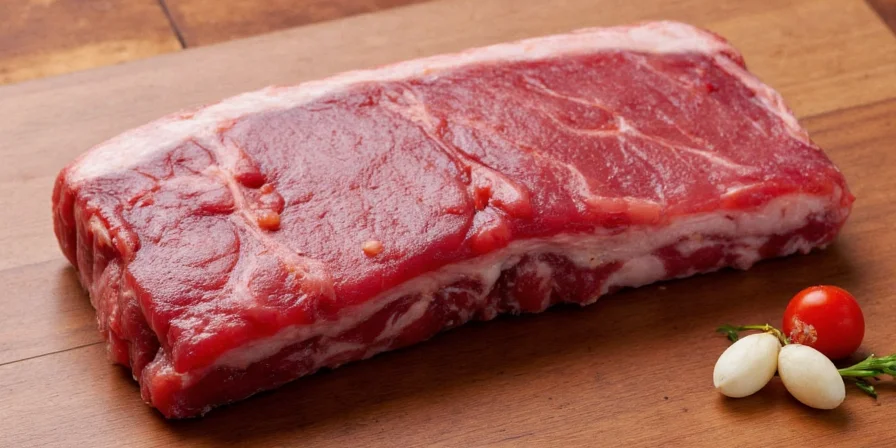
Cooking Methods That Actually Work
Tested methods for perfect results every time:
- Oven Braising (Most Reliable): Sear at 400°F, then braise at 275°F in covered Dutch oven with 1 cup liquid for 3 hours (beef) or 2 hours (pork)
- Slow Cooker (Easiest): Sear first, then cook on low for 6-8 hours (beef) or 4-6 hours (pork) with 1/2 cup liquid
- Smoker (Best Flavor): Smoke at 225°F for 4-5 hours (beef) or 3-4 hours (pork) until internal temp reaches 203°F
- Instant Pot (Fastest): 45 minutes on high pressure (beef) or 35 minutes (pork) with 1 cup liquid
- Grill (For Finishing): Sear over direct heat for 2-3 minutes per side after slow cooking for perfect crust
Pro Tip: Always rest for 15 minutes before serving - this makes a bigger difference than any fancy technique.
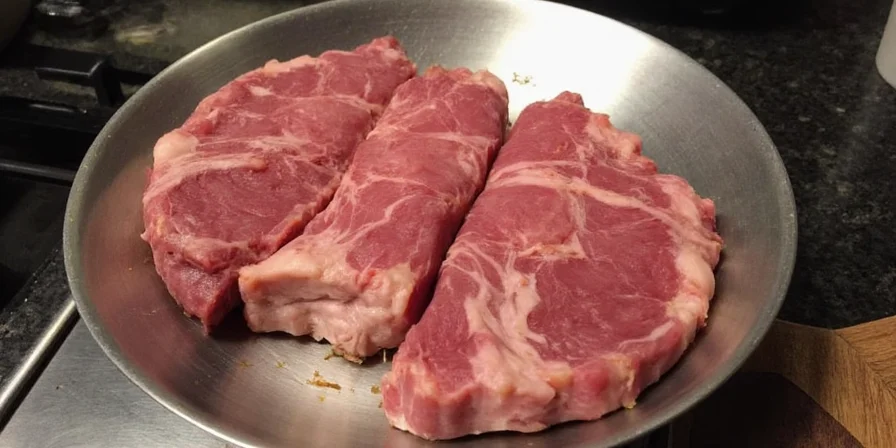
Cost Comparison: Value Showdown
| Metric | Pork Short Ribs | Beef Short Ribs |
|---|---|---|
| Average Price per Pound | $4.99-$6.99 | $6.99-$9.99 |
| Cooking Time | 2-3 hours | 3-4 hours |
| Meat Yield After Cooking | 65-70% | 60-65% |
| Leftover Quality | Good (best eaten same day) | Excellent (flavor improves next day) |
| Best Cooking Method | Slow cooker or Instant Pot | Smoker or Dutch oven |
Common Mistakes to Avoid
These errors ruin otherwise good short ribs:
- Mistake: Using the same cooking time for both meats
Solution: Pork needs 30-50% less time than beef - Mistake: Overcomplicating spice blends
Solution: 3-5 ingredients max - let the meat shine - Mistake: Skipping the sear
Solution: Always sear first for better flavor and texture - Mistake: Cutting too soon after cooking
Solution: Rest for 15 minutes minimum before serving - Mistake: Using high heat to speed up cooking
Solution: Low-and-slow is non-negotiable for tender results
Final Recommendation
Here's our straightforward advice after testing both cuts across multiple cooking methods:
- Choose pork short ribs when: you need dinner ready faster, on a budget, or prefer sweeter flavor profiles
- Choose beef short ribs when: making a special meal, want maximum flavor depth, or need leftovers that taste even better the next day
For most home cooks, having both in your repertoire makes sense - pork for weeknights, beef for weekends. Start with pork to build confidence, then graduate to beef once you've mastered the basics.
Regardless of which you choose, keep these golden rules: cook low-and-slow, don't skip the sear, and always rest before serving. Follow these, and you'll get tender, flavorful short ribs every time - no biochemistry degree required.
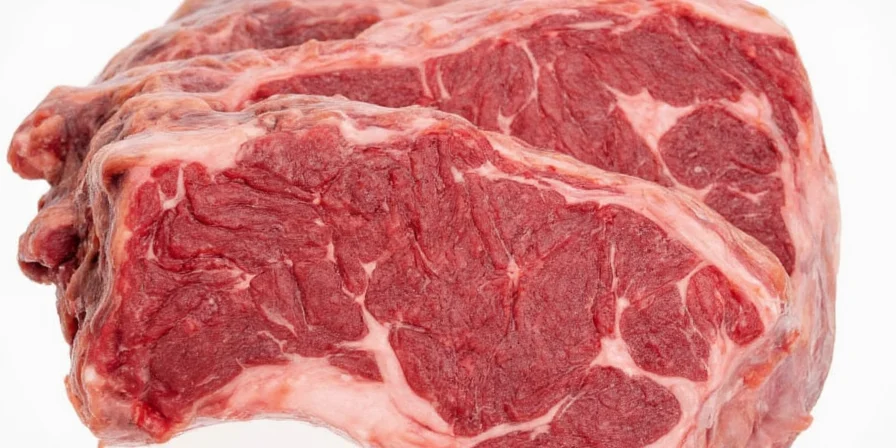
Quick Reference Guide
- Best for beginners: Pork short ribs (faster, more forgiving)
- Best flavor depth: Beef short ribs (richer, more complex)
- Cheapest option: Pork short ribs (typically 25% less expensive)
- Perfect cooking temp: 275°F (135°C) for both
- Cooking time: Pork: 2-3 hours, Beef: 3-4 hours
- Top spice combo: Pork: Brown sugar + smoked paprika, Beef: Coffee + smoked paprika
Frequently Asked Questions
Which short ribs are easier for beginners?
Pork short ribs are more beginner-friendly. They cook faster (2-3 hours vs 3-4 for beef), are more forgiving with timing, and typically cost less. The sweet flavor profile also matches what most home cooks already understand how to work with.
Can I use the same recipe for both meats?
You can technically use the same recipe, but you'll get better results with meat-specific adjustments. Reduce cooking time by 30-50% for pork, use sweeter spices for pork, and earthier spices for beef. The same recipe often works with these simple modifications.
Why are my short ribs always tough?
Tough short ribs almost always result from insufficient cooking time or temperature that's too high. They need low-and-slow cooking (275°F max) for at least 2 hours (pork) or 3 hours (beef) to break down connective tissue. Rushing the process guarantees tough results.
What's the most cost-effective way to cook short ribs?
Pork short ribs in a slow cooker is the most cost-effective option. Pork costs 20-30% less than beef, and the slow cooker uses less energy than an oven. You'll get tender, flavorful results for around $10-$15 for a family meal, with minimal active cooking time.

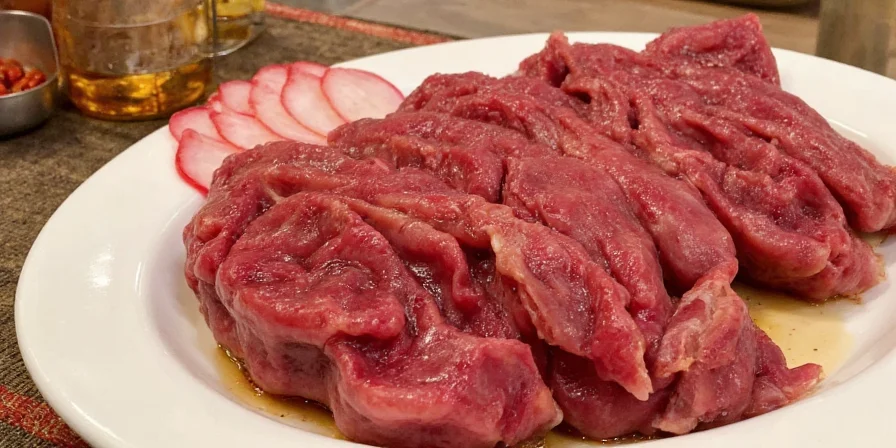









 浙公网安备
33010002000092号
浙公网安备
33010002000092号 浙B2-20120091-4
浙B2-20120091-4